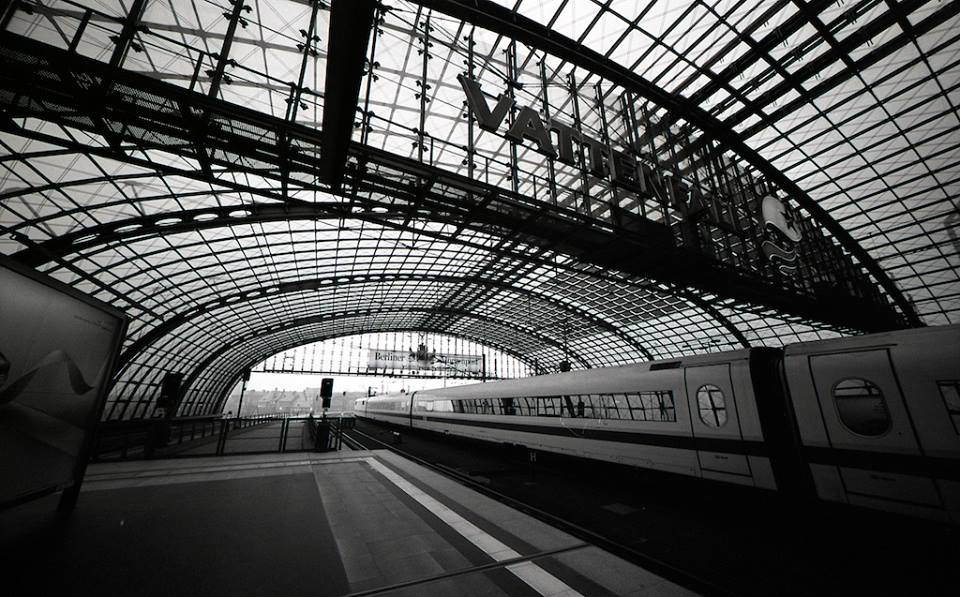
Berlin and the European Identity
At first glance, Berlin might appear to represent everything that the United Kingdom has chosen to reject. ‘A real Berliner is not a Berliner’ reads the romantic graffiti inscription at Warschauerstrasse S-Bahn station. This graffiti was probably the handiwork of an Italian tourist, but it nonetheless captures the attraction that Berlin has held since the reunification of the city: a place where identity and status is determined not by wealth or nationality, but by far more intangible and fluid notions.
Beneath this veneer of comfortable non-conformity and tolerance, however, lurk the same social tensions that have plagued other European cities. July saw violent protests in Friederichshain, targeted mainly at rapidly growing rates of foreign ownership of property within the city. City authorities had already made attempts to preempt this discontent by limiting the amount of properties that can be accessed through the short-term rental market (usually on sites such as airbnb.) This mirrors the approach of Barcelona mayor Ada Colau, who announced in 2015 that properties rented without a permit could see fines of up to 60,000 euros. It is perhaps futile to redress decades of chronic failure in city planning by placing restrictions on a comparatively small sector of the housing market – Airbnb listings, at just 11,000, make up 0.4% of all flats in Berlin. But maybe then the law is partially symbolic as well, an acknowledgement that the ‘sharing economy’ is not yet for everyone to share. Moreover, German law that allows municipal governments to match any private offer for apartments that come on the market gives the city a degree of control over property prices that far outstrips that of local councils in Britain.
In both cities, social housing has served as a catalyst of unrest. But this traces back to the cultural catch-22 faced by Berlin as in many other cities. The desirability of the city from a cultural standpoint inevitability draws people from around the globe, as both contributors and detractors. The very culture that people came for in the first place thus transforms under their watch: the £3.50 flat white in Shoreditch is the same as the €7 mojito in Kreuzberg. And too often foreign investment is a byword for the reweaving of the local and unique into one big shopping mall, where the only thing sold is crayfish and avocado sandwiches. The abandoned industrial buildings that provided the loci for Berlin’s underground music scene now seem like outliers in the increasingly developed city. Ethnomusicologist Luis-Manuel Garcia describes this as a byproduct of a newfound form of tourism highly prevalent in what he terms the ‘Techno Jetset’: the anti-tourist. Garcia describes the anti-tourist as one who deliberately eschews the conventional experience and prefers to view their visit as a vague quest for finding the ‘authenticity’ within a city: the guided tour is replaced by ‘hanging out’, the museum for the municipal tour. Thus the ‘creative class immigrant’ is seen as not just a threat to material resources, but to cultural preservation as well.
But if Berlin’s residents are concerned with the unweaving of the city’s fabric, its government decidely isn’t. In April the police cracked down on the open-air market in Gorlitzer Park, which had served as a lynchpin for fuelling the city’s bohemian aspects. Equally ominous was the repetition of the government’s invitation for technology start-ups across Europe to move to Berlin. The ‘new Berliner’ desired by the government is more Banana Republic than Berghain.
And as the Berliner identity becomes more insular, it isn’t foreigners that are the sole targets of this local ire, but even other Germans. Graffiti decries the ‘Schwabians’ – wealthy immigrants from Bavaria are held partly responsible for the perceived yuppification of Berlin. Even Georg Hegel, born in Stuttgart but a Berlin resident, isn’t protected by 200 years of posterity: a statue of him was recently targeted by anti-Schwabians, who defaced it with currywurst in a novel form of political protest.
Yet in spite of this inward-looking trend, Berlin and Germany remain comfortable with their identity being subsumed in a wider European one. New arrivals in the city can get lessons in German culture and language for just €3 an hour from one of the state-subsidised volkshochschules (community colleges) that are located around the city. And the country that accepted one million refugees last year doesn’t appear to be relinquishing its commitment to an outward-facing Europeanness – ‘Wir konnen das scheffen’ (We can handle this) urges Merkel, in a language of typical German efficiency. For all the lurking anger, there are still few places that offer a greater refuge for the marginalised. While British politicians gave empty platitudes to integration in the face of rising scepticism, Germany developed its attitudes and infrastructure to cope with the challenges of the globalised 21st century. Perhaps it is a matter of historical legacy, or just historical circumstance. The very nature of the European project for Germany will always be shaped by the horrors that gave its first impetus. Britain by contrast found Europe by accident, whilst scrambling around in the dark for the pieces of its empire. And maybe the last few months serve as a culmination of that process – it’s all too easy to discard history when you never really learnt it in the first place.







